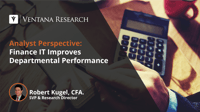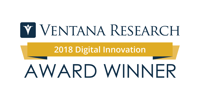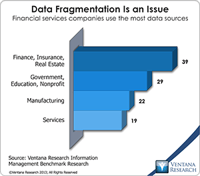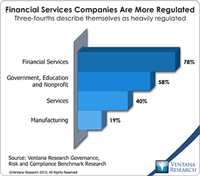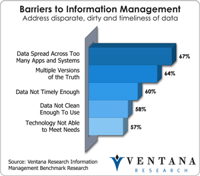The need for a COVID-19 vaccination “passport” has prompted some to suggest using blockchain technology as a means of reliably verifying an individual’s status at an international level. There are precedents: for example, until smallpox was eradicated, all international travelers were obliged to carry an immunization record for that disease on a standard paper form to gain entrance to a country. With the likelihood that COVID-19 will remain endemic for many years, a reliable digital record with...
Read More
Topics:
Data Governance,
Information Management,
Data,
blockchain
Environmental, social and governance reporting by public corporations has become a top-of-mind issue for senior executives and boards of directors as countries increasingly consider or mandate its implementation in some form. The fundamental rationale for ESG reporting is rooted in the inability of purely financial measures to capture externalities (such as greenhouse gas emissions) or provide metrics that enable an objective assessment of management’s ability to properly determine trade-offs...
Read More
Topics:
Human Capital Management,
Office of Finance,
Business Intelligence,
Data Governance,
Data Preparation,
Data,
Financial Performance Management,
ERP and Continuous Accounting
A year of business uncertainty, lockdowns and operational disruptions forced finance and accounting organizations to adapt and change in many ways that are proving to be permanent. The need to operate virtually resulted in some organizations accelerating their adoption of technology, bringing them closer to achieving a transformation of the finance and accounting function: reshaping the department into an organization that is more forward-looking and strategic. Strategic in the sense of...
Read More
Topics:
Office of Finance,
Business Intelligence,
Data Governance,
Data Preparation,
Business Planning,
Financial Performance Management,
ERP and Continuous Accounting,
blockchain,
robotic finance,
Predictive Planning,
AI & Machine Learning
By itself, data isn’t useful for business; the application of analytics is necessary to transform data into actionable information. Data analysis of one sort or another has long been a core competence of finance departments, applied to balance sheets, income statements or cash flow statements. Today, however, Finance must go beyond these basics by expanding the scope of the data being examined to include all financial and operational information that can yield actionable insights. Analysis thus...
Read More
Topics:
Customer Experience,
Human Capital Management,
Marketing,
Voice of the Customer,
business intelligence,
embedded analytics,
Learning Management,
Analytics,
Collaboration,
Data Governance,
Data Lake,
Data Preparation,
Information Management,
Internet of Things,
Contact Center,
Data,
Product Information Management,
Sales Performance Management,
Workforce Management,
Financial Performance Management,
Price and Revenue Management,
Digital Technology,
Digital Marketing,
Digital Commerce,
ERP and Continuous Accounting,
blockchain,
natural language processing,
robotic finance,
Predictive Planning,
candidate engagement,
Intelligent CX,
Conversational Computing,
Continuous Payroll,
revenue and lease accounting,
collaborative computing,
mobile computing,
Subscription Management,
agent management,
extended reality,
AI & Machine Learning
“Straight-through processing” (STP) is a business process and data architecture methodology. Technology advances have made STP increasingly feasible for any business process, allowing companies to design and execute them from inception to completion in a more automated fashion, minimizing or eliminating human intervention in the process. The associated data also progresses automatically end-to-end through the process, preserving its integrity. Because there is no human intervention, data is...
Read More
Topics:
Sales,
Customer Experience,
Office of Finance,
Recurring Revenue,
Data Governance,
Financial Performance Management,
Digital Commerce,
ERP and Continuous Accounting,
Billing and Recurring Revenue
Workiva recently introduced Wdata, a cloud facility for centralizing financial and non-financial information from multiple sources. It frees up time for finance organizations, especially financial planning and analysis (FP&A) groups, to explore conditions and trends in their business because they need to spend less of it gathering data and preparing it for analysis and reporting. Ventana Research recently awarded Workiva our Digital Innovation award for Wdata because of its transformative...
Read More
Topics:
Office of Finance,
Recurring Revenue,
Continuous Planning,
Data Governance,
Data Preparation,
Financial Performance Management,
Price and Revenue Management,
Enterprise Resource Planning,
ERP and Continuous Accounting,
Sales Planning and Analytics,
revenue recognition
Blockchains are attractive because their built-in security and trust factors make them useful for almost all business interactions involving organizations and individuals. Blockchains have two basic functions. One is as a method for handling transactions involving property such as land deeds, trademarks or other assets. The second involves exchanges of data such as identities of individuals or businesses, the location of an object at a point in time or weather conditions. All interactions...
Read More
Topics:
Big Data,
Data Science,
Mobile,
Marketing Performance Management,
Office of Finance,
Analytics,
Business Intelligence,
Cloud Computing,
Data Governance,
Data Integration,
Data Preparation,
Internet of Things,
Digital Technology,
Digital Marketing,
Digital Commerce,
Operations & Supply Chain
The proliferation of chief “something” officer (CxO) titles over the past decades recognizes that there’s value in having a single individual focused on a specific critical problem. A CxO position can be strategic or it can be the ultimate middle management role, with far more responsibilities than authority. Many of those handed such a title find that it’s the latter. This may be because the organization that created the title is unwilling to invest the necessary powers and portfolio of...
Read More
Topics:
GRC,
Office of Finance,
Operational Performance Management (OPM),
Chief Risk Officer,
CRO,
ERM,
OpenPages,
Business Analytics,
Business Collaboration,
Cloud Computing,
Data Governance,
IBM,
Business Performance Management (BPM),
compliance,
Data,
Financial Performance Management (FPM),
Risk,
Financial Services,
FPM
Integrated risk management (IRM) was a major theme at IBM’s recent Smarter Risk Management analyst summit in London. In the market context, IBM sees this topic as a means to differentiate its product and messaging from those of its competitors. IRM includes cloud-based offerings in operational risk analytics, IT risk analytics and financial crimes management designed for financial institutions and draws on component elements of software that IBM acquired over the past five years, notably from ...
Read More
Topics:
GRC,
Office of Finance,
Operational Performance Management (OPM),
Chief Risk Officer,
CRO,
ERM,
OpenPages,
Business Analytics,
Business Collaboration,
Cloud Computing,
Data Governance,
Governance, Risk & Compliance (GRC),
IBM,
Business Performance Management (BPM),
compliance,
Customer Performance Management (CPM),
Data,
Information Applications (IA),
Information Management (IM),
IT Performance Management (ITPM),
Risk,
Supply Chain Performance Management (SCPM),
Financial Services,
FPM
Read More
Topics:
Office of Finance,
Operational Performance Management (OPM),
eDiscovery,
Exterro,
Data Governance,
Data Management,
Governance, Risk & Compliance (GRC),
Informatica,
Business Performance Management (BPM),
compliance,
Data,
Financial Performance Management (FPM),
Information,
Information Applications (IA),
Information Management (IM),
Risk,
Sales Performance Management (SPM),
Workforce Performance Management (WPM)



